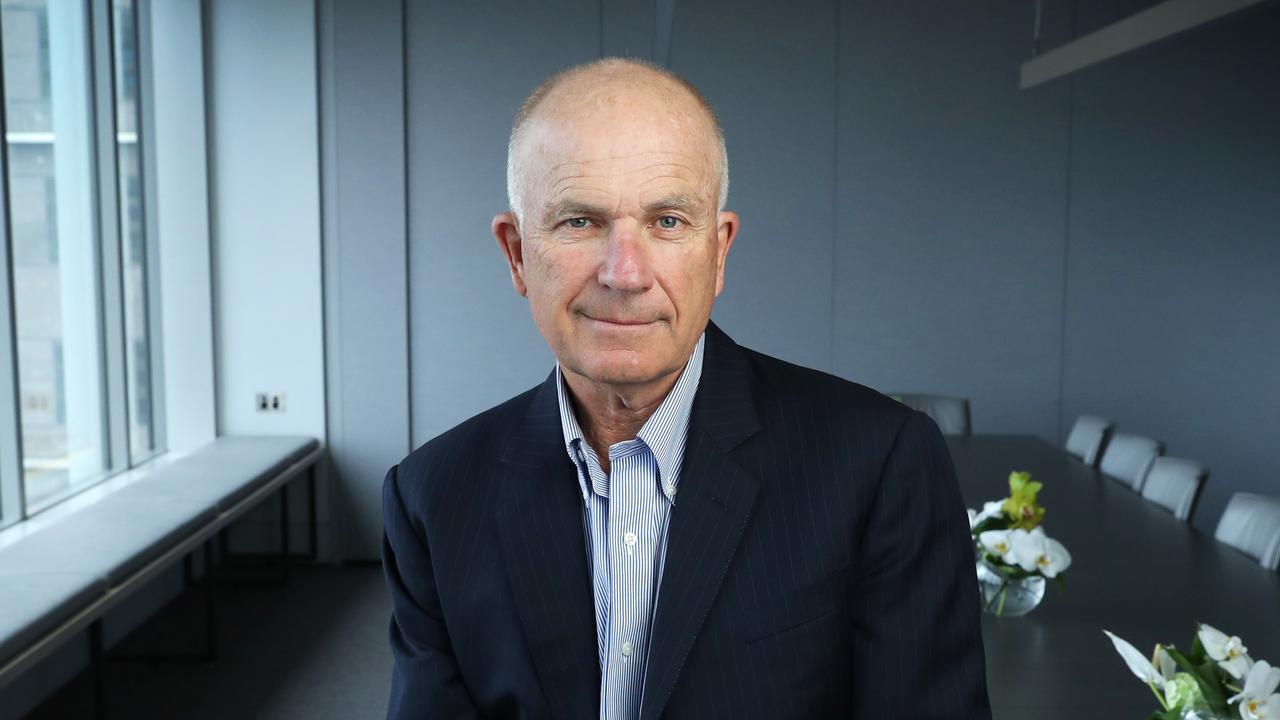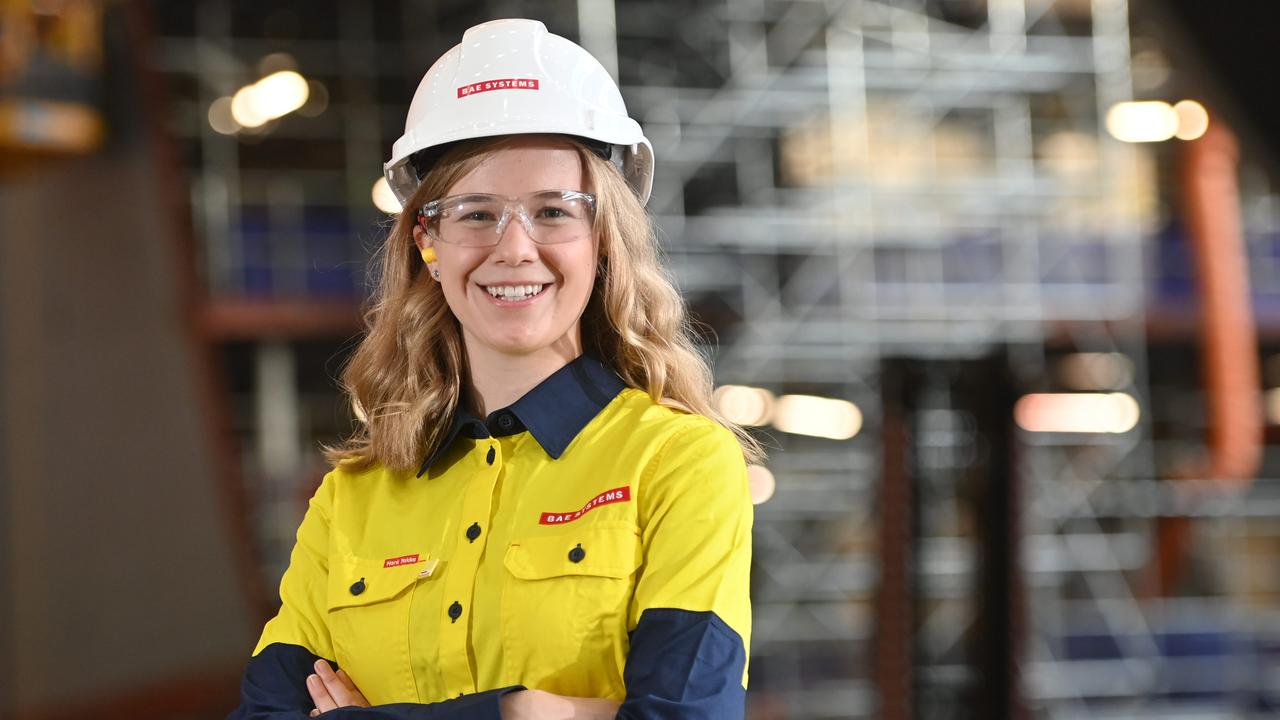Woodside Energy super-profits become hard to ignore
Woodside is cashed up on the oil price boom and this has made it a prime target for Canberra.

Business
Don't miss out on the headlines from Business. Followed categories will be added to My News.
The coming year represents a turning point for Meg O’Neill’s Woodside, as the gas and oil major moves closer to financial sign-off on mega-projects that stand to keep the energy flowing for years to come. At the same time first gas production is due from Senegal in coming months and the $US2.2bn ($3.3bn) BHP-funded Mad Dog oilfield expansion in the Gulf of Mexico is set to start flowing.
There’s a final investment decision for the Trion deepwater oilfield off Mexico looming and final sign-off on the H2OK wind-powered liquid hydrogen project in the US.
However, Canberra is casting a bigger shadow than normal over Woodside. The west coast energy major is becoming hard to ignore after a bumper year for oil and gas prices drove Woodside to a record $US6.5bn underlying profit.
Around the world energy companies profiting from the Ukraine-linked surge in oil and gas prices are being targeted by cash-strapped governments. In Britain a new Energy Profits Levy has seen the likes of BP pay $US700m in tax last year.
In the EU efforts are being made to capture more tax from super-profits of all companies and redirect the funds to lower household energy bills.
Shell’s former long-serving boss Ben van Beurden last year said it was “inevitable” that a discussion would be had around taxing energy profits to help those struggling with costs. It hits close to home because Shell is a long-term partner of Woodside in the North-West Shelf LNG.
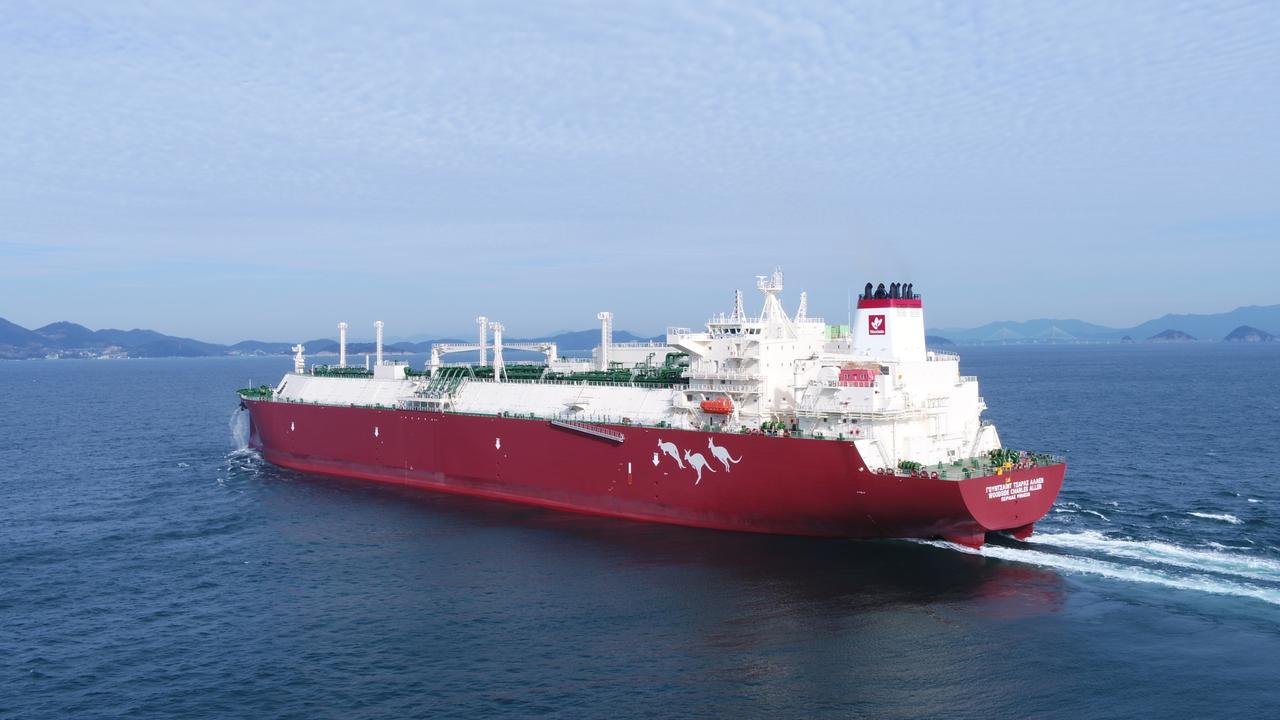
Even Queensland’s Palaszczuk government has taken aim at coal mines for additional tax revenue, prompting an investment strike by mine operator BHP in the state.
O’Neill is reading the room.
Speaking in Sydney, the Woodside boss came out pre-emptively swinging against any temptation from Treasurer Jim Chalmers to roll out his own super-profits tax. Last October Chalmers got the ball rolling again on a Treasury review looking at updating the current 40 per cent petroleum resource rent tax. The work began when Josh Frydenberg was treasurer but was put on hold during the Covid pandemic.
But O’Neill pointed to the leverage Canberra has to booming oil and gas prices to the current regime. In the past 12 months Woodside paid $2.7bn in tax and royal payments, including $720m in petroleum rent resource tax. A year earlier when prices were subdued Woodside paid $700m all up.
“When Woodside is profitable … our shareholders benefit and the government of Australia benefits,” O’Neill says.
The 228 per cent profit jump paved the way for a bigger than expected final dividend of $US1.44 a share, representing a payout of 80 per cent. Combined with the interim dividend, total payout for the year almost doubled to $US2.53 a share.
Despite the big headline number, the market was looking for more, with higher tax payments around the world and site restoration charges eating into earnings. Woodside shares closed up 1.5 per cent.
By spelling out Woodside’s future investment slate and this year’s $US6.5bn capex budget the unspoken message to Chalmers was clear: Woodside will find other places to spend the cash. This includes longer-term aspirations such as $US5bn in green energy extending to hydrogen projects in Western Australia and Tasmania over the coming decade.
Other mega-projects on Woodside’s agenda include the development of long-term gas fields Browse and Sunrise, both off the coast of Australia.
The Albanese government’s industry code of conduct includes a reasonable pricing provision that applies to east coast producers. Woodside and much of the industry fears this could set a long-term, artificial floor on pricing.
Through its merger with BHP’s oil and gas assets last year, Woodside inherited joint venture position in Victoria’s rapidly ageing Bass Strait gas fields, but has a commitment to spend up to extract more from the Kipper field as well as the Turrum field. Elsewhere Woodside has been studying a LNG import terminal for the Longford plant in Victoria. Investment decisions along with operator ExxonMobil have been put on hold in the Bass Strait and budgets have reverted to six-month forecasting, something that doesn’t sit well with ultra-long lead times demanded by the energy industry.
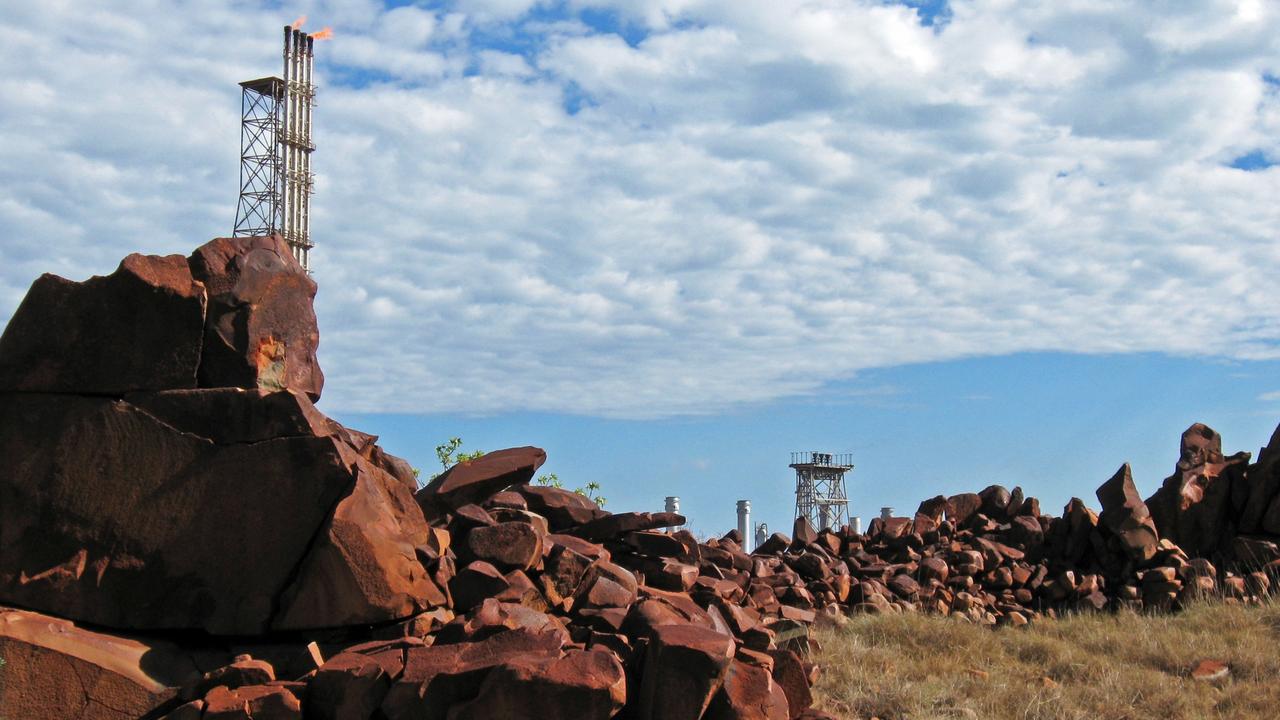
“Because of the uncertainty it’s very difficult to make investment decisions when there’s a residual uncertainty around the prices that we’ll be able to get for our commodities,” O’Neill says.
She says talks with Canberra have been continuing around the price caps and code of conduct and there is an “understanding of the complexity” of the energy market.
“I do feel pretty positive about the quality of the conversation we’re having about the recognition that our business – the Bass Strait business – all we’re selling to is the domestic market. And we’re keen to continue to support that market,” O’Neill says.
With Woodside officially owning the BHP oil and gas assets for a little more than seven months, there were some clues about how O’Neill’s energy major is evolving. The merger has paved the way for $400m in cost savings and benefits and provided a bigger balance sheet and more than $US6.5bn of free cash flow to work off.
Indeed, O’Neill says Woodside is open to future acquisitions in oil where it makes sense, adding that oil will continue to be part of the energy mix for the next three decades.
Investors in the dark
The Federal Court’s narrow approach to open justice is – as expected – leading to a messy outcome for Australia’s capital markets and companies trying to figure out a legal minefield.
A legal action filed by the corporate regulator alleging serious continuous disclosure breaches that names the former Freedom Foods, since renamed Noumi, sparked a near 15 per cent share price slide in the dairy processor and food manufacturer earlier on Monday. The shares later swung back to close even.
But under new rules pushed through by Federal Court chief Justice James Allsop shortly before Christmas, the statement of claim containing crucial details of the allegations cannot be released unless all parties agree or until a directions hearing is held.
A directions hearing has not been set and attempts are being made to contact the four parties to the proceeding.
Corporate regulator ASIC says it has started legal proceedings against two former top executives of the food company – former chief executive Rory Macleod and former chief financial officer Campbell Nicholas — as well as Noumi itself.
ASIC alleges continuous disclosure failures, breaches of company director and officer duties, as well as misleading conduct.
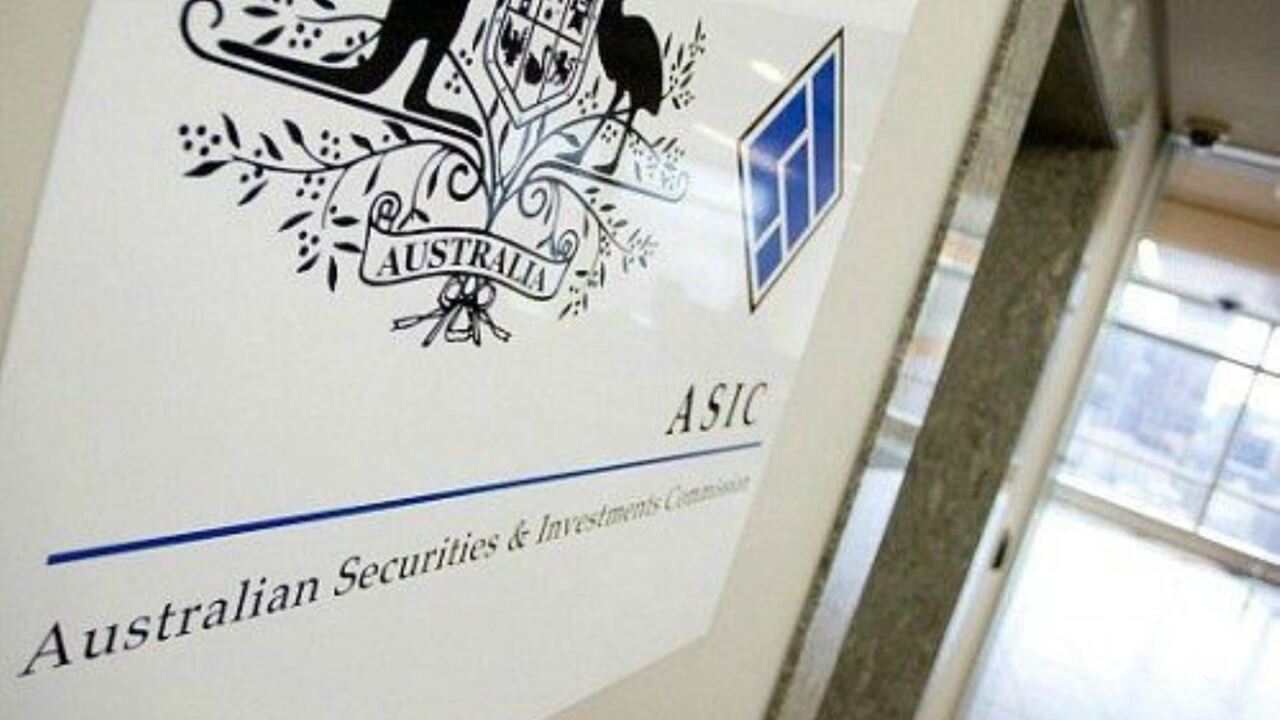
Until then shareholders can only rely on Noumi’s public comments and its interpretation of the allegations, which means investors have no way of knowing whether this will have a significant or modest impact on Noumi. The statement of claim does not detail the size of penalties sought by ASIC, according to Noumi. ASIC says it is seeking pecuniary penalties, but is not specific.
Noumi has done its very best to work through how to disclose what has been filed without breaching the Federal Court’s new rules. However, without the source document there is no certainty the allegations disclosed by Noumi align with the legal filing.
Nor can publishers or other interested parties be confident around defamation protections or possible contempt issues unless they quote the originating application – it could be months away until a directions hearing is held.
According a statement issued by Noumi, MacLeod and Nicholas allegedly failed to disclose material information to investors regarding the value of Noumi’s inventories in its financial report for the full year ending June 30, 2019, as well as reported sales revenue, gross profit and profit after tax in the same financial report and for its accounts for the half-year ending December 31, 2019.
ASIC has also made further specific allegations over Macleod relating to information he provided to Freedom Food’s auditors and directors, but again it is limited in what it can disclose.
The executives quit the then Freedom Foods by mid-2020 as the company was forced to issue heavy writedowns against its ballooning inventories. At the time Freedom Foods hired legal firm Ashurst and auditors PwC to investigate its accounts.
Noumi said it is currently reviewing ASIC’s statement of claim. Given that the matter is before the court, it won’t be commenting further. Until the first hearing, investors will be none the wiser.
Originally published as Woodside Energy super-profits become hard to ignore







